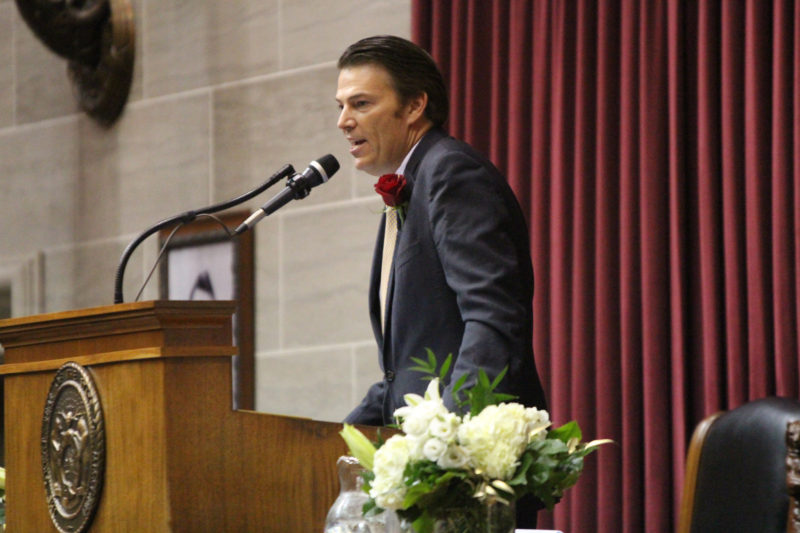JEFFERSON CITY, Mo. – House Speaker Todd Richardson made clear his intention to strike directly at major reforms early in the 2017 session with his opening speech to the chamber Wednesday.
Democrats across the state have dreaded the beginning of the legislative session after the Republican landslide in November granting the GOP supermajorities in both chambers and near complete control over the executive branch, especially with the election of Gov.-elect Eric Greitens. Multiple pieces of legislation kept at bay by pro-union Republicans and Democratic Gov. Jay Nixon, especially right-to-work, are expected to pass quickly in the legislature after years of attempts.
Richardson, R-Poplar Bluff, confirmed those fears with his speech when said he would refer Rep. Holly Rehder’s right-to-work bill to committee Thursday, the first day he is legally allowed to do so.
“I would ask the chairwoman of the economic development committee to get that legislation to the floor as soon as possible,” he said. “To build a more stable foundation, to grow jobs, to increase wages, we will put right-to work legislation on the governor’s desk and he will sign it.”
In a press conference after the House adjourned for the day, he hoped the bill would reach the House floor by January.
Along with right-to-work, Richardson said he would refer at least 50 bills to committees Thursday focused on economic development and decreasing regulations burdensome to business and the new “sharing economy.” The speaker noted specially in the speech that he would task the Government Efficiency and Professional Registration and Licensing Committees to relieve statutory and regulatory burden of the government on small businesses, specifically as it related to ridesharing and lodging companies like AirBnB.
“It is past time that Missouri had statewide frameworks for disruptive technologies and allowed private enterprise to function in a free market,” he said in his speech.
For House Minority Leader Gail McCann Beatty, D-Kansas City, ridesharing and similar legislation would depend on the type of bill Republicans attempt to pass. She referred to problems Kansas City had with Uber after Uber made concessions for fingerprint background checks on a local ordinance only to sponsor statewide ridesharing legislation that would remove that provision. Many Kansas City legislators on both sides of the aisle did not support the Uber bill after that occurrence.
As for right-to-work, Democrats have few options at blocking the measure, but Beatty said she would like to put a referendum clause on Rehder’s bill even if the prospect of doing so is “very difficult.”









